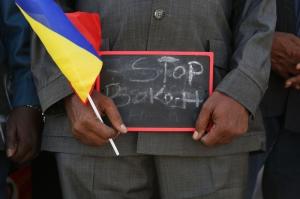Algerian gov’t cracks down on house churches, arrests pastors amid Israel-Hamas war

The Algerian government has intensified its clampdown on house churches, imposing a strict limit of 10 people per gathering, according to a report, which says several Algerian church leaders were recently sentenced to prison.
The enforcement includes not only limiting gatherings but also sentencing several church leaders to prison, says the U.S.-based persecution watchdog International Christian Concern.
This crackdown coincides with heightened tensions following the Hamas-Israel war, during which the Algerian government perceived Christians as sympathizers of Israel, thereby associating them with foreign and Western influences that allegedly threaten the nation’s Islamic unity, ICC explains.
Morocco, a key regional competitor of Algeria, established diplomatic ties with Israel in 2020 as part of the Abraham Accords, facilitated by the United States. This normalization was in return for the U.S. acknowledging Morocco's sovereignty over Western Sahara, a territorial issue that Algeria opposes.
The Voice of the Martyrs ministry highlights the country's historical context, which adds to the complexity of this situation.
Before Islam’s emergence in the seventh century and the subsequent Arab Muslim invasion, Algeria was predominantly inhabited by Berbers, it says. Today, the Berbers, mainly residing in the mountainous Kabylie region in northern Algeria, are experiencing a resurgence in Christian faith.
This revival traces back to the region’s early Christian roots, exemplified by figures like Augustine of Hippo, a Berber from Algeria. Despite centuries of Muslim dominance, which nearly erased public Christian worship, many Berbers are now reclaiming their Christian heritage.
The revival has led to one of the largest movements of Muslims converting to Christianity globally, particularly within this community. The rapid growth of churches and the bold outreach of Algerian Christians to their Muslim compatriots have incited increased persecution in an already unstable political climate.
Nearly all Algerian Christians come from the Kabyle ethnic group, which has a history of seeking independence from the central government. This further complicates their situation, as the government's efforts to maintain national unity often intersect with religious issues.
The government and families of converts often subject these new Christians to persecution. Additionally, the local community imposes various hardships on them, VOM adds.
ICC also notes that in 2022, the Algerian authorities shut down at least 16 churches, continuing a trend that began with the COVID-19 lockdowns in 2020.
Christians face heightened scrutiny and restrictions, even though churches are technically allowed to meet openly.
Despite these adversities, Berber Christians have formed a collective voice through an Evangelical association, advocating for their rights and religious freedoms, VOM adds. Their commitment to sharing the Gospel, even in regions close to al-Qaida terrorist camps, demonstrates their resilience.
While imprisonment for religious beliefs is not common, instances have occurred, such as the incarceration of a believer over a social media post.
The Bible Society in Algeria, for example, faces significant challenges in printing and importing Bibles, with the government closely monitoring, limiting and controlling these activities.



























